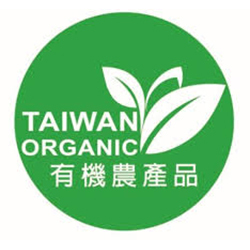Organic Certification
- Avoid the use of synthetic chemical inputs (e.g. chemical fertilizers, pesticides, antibiotics, food additives), radiation and sewage sludge;
- Avoid genetically modified seeds;
- Use agricultural land (usually three years or more) without the addition of banned chemicals, use "non-chemical" fertilizers for fertilization and processing, storage and preservation;
- For livestock, comply with specific requirements for feed, feeding and husbandry;
- Keep detailed written production and sales records (audit trail);
- Maintain strict physical separation of organic and non-certified products;
- Conduct regular on-site inspections.
| Organic certification label |
|---|
 Hong Kong Organic Resource Center |
 Taiwan organic certification |
 China organic certification |
 Australia |
 Australia |
 Canada |
 European Union |
 France |
 Germany |
 Japan |
 USA |
Organic certification is controversial
Sustainable Agriculture Recognition
"Agriculture Raisonnée'' (AR) or sustainable agriculture is the second (third) level of systematic approach to farm quality in France. It focuses on the overall management of the farm, taking into account environmental, social and economic aspects . Certifications recognized by French law include:
- Track the growth process by recording and tracking operations,
- protect environment. By minimizing and controlling chemical dosage and waste management,
- Maintain biodiversity and contribute to landscape conservation,
- animal welfare,
- Improve employee working conditions
High Environmental Value
"High Environmental Value" (HVE) corresponds to the highest level of farms and production sites in France that meet the highest environmental standards. Farm Environmental Certification is a voluntary certification method designed to identify and promote farmers' adoption of practices that are particularly environmentally friendly. HVE covers four key areas:
- biodiversity conservation,
- plant protection strategies,
- fertilizer use management,
- water management
Biodynamic Certificate
The Demeter certificate is an international symbol of biodynamic agriculture. This mark is more stringent than the organic mark, and a farm must be organic to qualify as biodynamic. Biodynamic practice means that the entire system is most independent from external inputs and is sufficient in itself due to the complementarity of the products. To meet this standard, farms should be as diverse as possible.
One of the main features of biodynamic practices is respect for planetary and lunar rhythms in crop production.
The goals are:
- Increase soil biodiversity (use rotational farming and produce green fertilizer from livestock)
- Maintain and create a balanced landscape
- Protect ecosystems by maintaining the most natural environment
To be biodynamic, a farm must follow target specifications but also be regularly controlled by international certification bodies.
Protected Designation of Origin (PDO, AOP-AOC, IGP) Food Quality Labels
The protected designation of origin mark is a certification mark provided by the European Union and is used to "indicate products that are produced, processed and prepared in a designated geographical area, using techniques recognized by local producers and ingredients from the relevant area."
This label ensures that only food that is truly produced in a certain region can be sold in the name of this region, in order to protect the reputation of the food origin, eliminate unfair competition and prevent consumers from buying food that is not from the genuine region.
For example, only wine made in the Jerez region of Spain can be called Jerez-Xérès-Sherry (see picture).
Foods that are protected and can be labeled with the "Protected Designation of Origin" label include: olive oil, rice and beans, hazelnuts, traditional beverages, fresh meat, cured meats, cured meat products, spices, fruits, vegetables, honey, cheese , sugar, vinegar, wine, etc.
The official writing and abbreviation of "Protected Designation of Origin" in the 23 EU official languages (except Irish) can be based on the local national script. For example, Italian and French are denominazione d’origine protetta and appellation d’origine protégée respectively.
Quality labels on food guarantee the origin of the food. Some are recognized at European level, others only at national level.
Here are the differences between AOP, AOC, IGP, STG, Organic (AB) and Label Rouge labels.
L’appellation d’origine protégée (AOP) and et appellation d'origine contrôlée (AOC)

🔆 In France, nearly 500 products are classified as AOP. We find in particular Camembert and Roquefort from Normandy, chestnuts from the Ardèche, walnuts from Grenoble, green lentils from Pouilly, olives from Nimes, etc.
For a complete list of French and European PDO products, you can consult the EU Register of Geographical Indications. Note that this scratchpad also lists IGP and STG (see below).
Geographical indication protection / L'indication géographique protégée (PGI)

A Protected Geographical Indication (PGI) is a European label designating a product whose characteristics are related to the geographical location where its production, development or transformation takes place.
IGP tags are a concept based on proprietary technology.
In France, this involves Bayonne ham, southwestern duck with foie gras, and more.
Guaranteed traditional specialties / La spécialité traditionnelle garantie(STG)

The Traditional Specialty Guarantee (TSG) label is a European label that allows protection of traditional recipes, i.e. ingredients, manufacturing or processing methods.
STG tags are based on traditional concepts.
Le Label Rouge

La certification de conformité (France)

In France, Qualified certification guarantees compliance with the characteristics certified according to the specification (for example: pork fed with 70% grain).
These characteristics must be significant, objective and measurable and distinguish the product from the standard.
Approximately 280 certification specifications are approved for meat, poultry, rabbit, fruits and vegetables, grains, fish, honey, beverages, delicatessen products and more.












